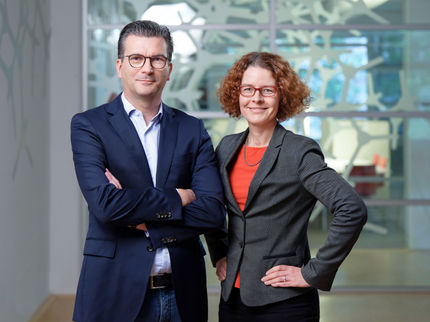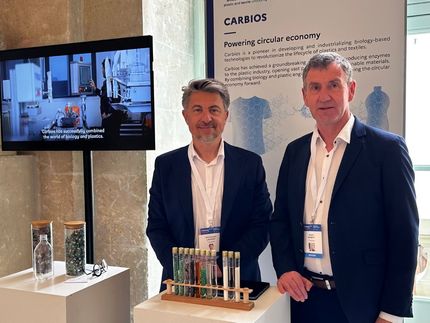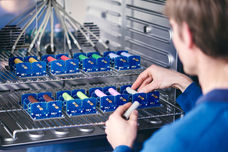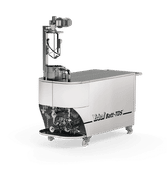The REWIND project: A leap into the future for battery recycling
Without lithium-ion batteries, environmentally friendly mobility and a sustainable energy supply would be virtually inconceivable. However, the increasing demand for batteries and the associated raw materials poses major challenges. The REWIND project aims to overcome important obstacles on the way to an efficient and ecologically sustainable circular economy. REWIND is part of the BattFutur program of the German Federal Ministry of Education and Research (BMBF).
The project goal is clearly defined: To significantly improve the recyclability of batteries in order to increase resource efficiency and reduce CO2 emissions. A central goal of REWIND is to counteract the shortage of skilled workers and to attract young scientists to battery research by establishing a junior research group at the Fraunhofer R&D Center for Electromobility (FZEB) of the Fraunhofer Institute for Silicate Research ISC. This project supports the overall goal of establishing a "Competence Center for Direct Recycling" and thus laying the foundation for future innovations.
Advanced Direct Recycling through Circular Design
The REWIND project sets new standards in battery recycling. With a circular approach "ab initio" - right from the start - the project aims to develop a lithium-ion battery (LIB) whose prototype is not only recyclable, but whose components can also be recovered almost completely and in a structure-preserving manner. After a regeneration step, the recyclates can be reused directly in cell production.
Despite the advantages of direct recycling - conservation of resources and (potentially) lower production costs due to the elimination of the high-temperature step in the synthesis of the active materials - no such process has yet been established on an in-dustrial scale. At present, the cells are usually mechanically shredded and then further processed by hydrometallurgical methods - with the extraction of many elements, but with the loss of the functional materials. This is mainly due to the low level of techno-logical maturity. For example, impurities from upstream mechanical processes compli-cate processing, and the necessary separation of cathodes and anodes is a particular technological hurdle. Due to the variety of lithium battery cell formats and the different cell chemistries, the separation of anodes and cathodes has not been economically feasible because the battery cells are not labeled. REWIND is also working on this problem and, for example, in cooperation with Prof. Dr. Karl Mandel from the Frie-drich-Alexander University Erlangen-Nuremberg, wants to advance labeling by using marker particles that enable simple and reliable identification of the ingredients.
A sustainable cycle
A key objective of REWIND is to develop a LIB cell with specially designed recyclable electrodes and cell designs. This means that cathode and anode active materials, as well as conductive carbon black and cell casings, can be regenerated using partially automated, water-based and energy-efficient processes and used directly in new bat-teries. Compared to conventional recycling methods such as pyrometallurgical and hydrometallurgical processes, REWIND's direct recycling offers significant advantages. This is particularly evident in the recovery of functional but less "valuable" cathode active materials such as lithium iron phosphate (LFP) and anode materials such as graphite.
Focus on LFP and transfer to alternative battery concepts
Due to the growing demand for LFP and its importance in battery technology, RE-WIND is focusing on this material. In addition, the concept is being transferred to sodium-ion batteries (NIB) to expand the application possibilities of the developed technologies. The material costs for NIB are lower compared to LIB. However, there are still unresolved technological challenges, such as lower energy density - so NIB auto-matically requires more space and weighs more for the same battery capacity.
Solid foundations and future prospects
The foundation for REWIND was laid by a series of public projects such as AutoKlass, IDcycLIB, AdRecBat, NaKlar, and ReUse, many of which were initiated and led by Fraunhofer ISC. "These projects have not only created valuable knowledge and a robust infrastructure, but have also paved the way for efficient work in the REWIND project," says Dr. Andreas Flegler, head of the Fraunhofer R&D Center for Electromo-bility and initiator of REWIND.
The REWIND project offers a great opportunity to close the cycle of direct recycling, to develop a profound understanding of the overall process and to develop innovative process steps. The project will lead to the establishment of a competence center for direct recycling. This will be a platform for interested industrial companies such as equipment manufacturers, OEMs and material producers.
The REWIND project therefore represents not only technological innovation, but also a sustainable vision that has the potential to fundamentally change the battery recycling industry. With the support of academic mentors such as Prof. Dr. Karl Mandel and a variety of industry mentors, the REWIND project will develop not only scientific but also practical solutions that can be quickly implemented in the industry. This project is an important step towards a more sustainable mobile future.
The four pillars of the REWIND project:
1. Material and Component Design: The goal is to design materials and components from the ground up to be recyclable without compromising functionality.
2. Labeling/Battery Passport: The development of ID markers within the battery cells will enable quick and clear identification of materials to ensure safe processing.
3. Cell design: Work is underway on a cell design that can be opened almost contactlessly, and the cathodes and anodes can be separated to allow direct recycling.
4. Transfer to sodium-ion batteries: The design and recycling concepts developed in the project will also be trans-ferred to sodium-ion batteries to extend the applicability of the research re-sults.
REWIND supporters
- BMW AG
- Carl Padberg Zentrifugenbau GmbH
- EurA AG
- Friedrich-Alexander University Erlangen-Nuremberg
- Himmelwerk Hoch- und Mittelfrequenzanlagen GmbH
- IBU-tec advanced materials AG
- Leclanché GmbH
- Netzsch-Gerätebau GmbH
- Porsche eBike Performance GmbH
- WeSort.AI GmbH
Other news from the department science
These products might interest you
Most read news
More news from our other portals
See the theme worlds for related content
Topic World Battery Technology
The topic world Battery Technology combines relevant knowledge in a unique way. Here you will find everything about suppliers and their products, webinars, white papers, catalogs and brochures.

Topic World Battery Technology
The topic world Battery Technology combines relevant knowledge in a unique way. Here you will find everything about suppliers and their products, webinars, white papers, catalogs and brochures.
Last viewed contents
© 1997-2025 LUMITOS AG, All rights reserved
































































